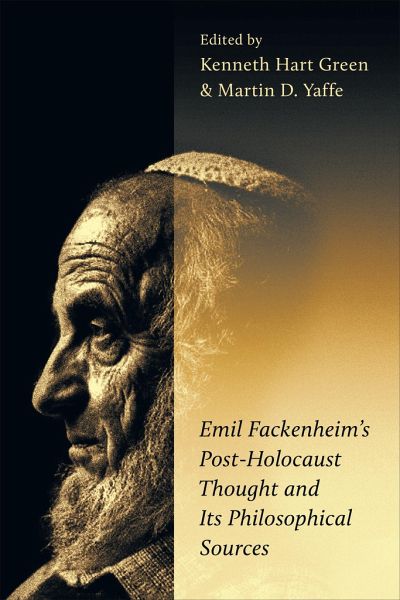
Emil Fackenheim's Post-Holocaust Thought and Its Philosophical Sources
Versandkostenfrei!
Versandfertig in 2-4 Wochen
31,99 €
inkl. MwSt.

PAYBACK Punkte
16 °P sammeln!
Emil Fackenheim’s Post-Holocaust Thought and Its Philosophical Sources engages with the philosophers who made the greatest impact on the thought of Emil Fackenheim.


